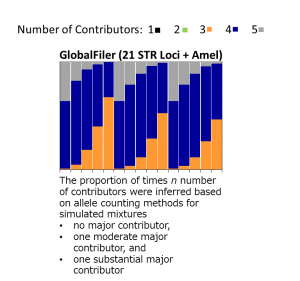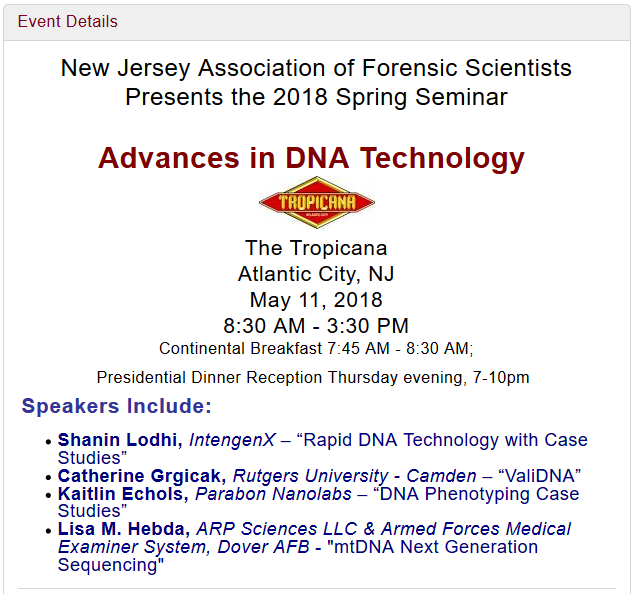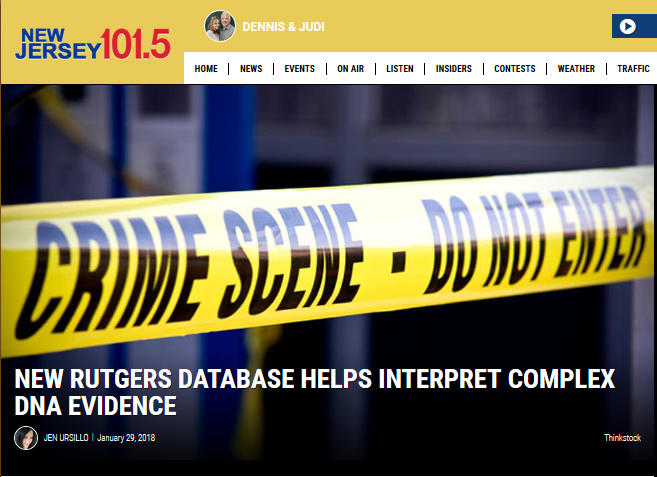M.S.-level Job Description:
- M.S. level Part-time Research Assistant open to all Plan A (thesis-track) enrolled M.S. or 4th-Year B.S./M.S. Students in Chemistry, Biochemistry, Biology or Forensic Sciences.
- Starts Fall 2019.
- $12/hour; flexible 15-20 hours/week.
- Up to 2 years.
- Data may be used toward M.S. thesis, if applicable.
- Training in and duties include, nucleic acid extraction, qPCR, PCR, dPCR, Capillary Electrophoresis, Next-Generation Sequencing and Data Analysis.
- Preferred candidates will have taken, or plan to take, courses in Biochemistry, Bio-analytical/Molecular Biology, Statistics & Genetics.
- Send C.V. to Dr. Catherine Grgicak at c.grgicak@rutgers.edu, if interested by April 30th, 2019.


 Drs. Grgicak and Lun along with Sarah E. Norsworthy publish an article entitled “Determining the number of contributors to DNA mixtures in the low-template regime: Exploring the impacts of sampling and detection effects” in Legal Medicine (DOI:
Drs. Grgicak and Lun along with Sarah E. Norsworthy publish an article entitled “Determining the number of contributors to DNA mixtures in the low-template regime: Exploring the impacts of sampling and detection effects” in Legal Medicine (DOI: 
